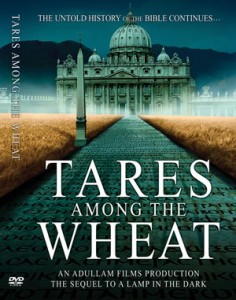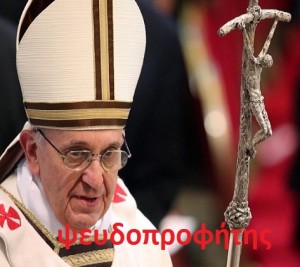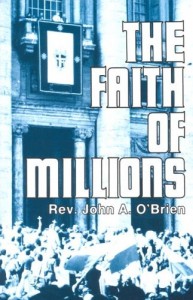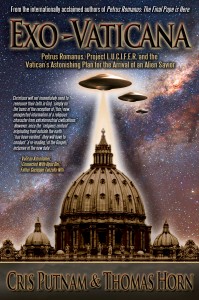 Pope John Paul II and Pope John XXIII were both made “saints” last Sunday in Rome. One of the requirements is to have performed two miracles which are verified and documented by official church investigators. However in these cases, it seems the standards have been dramatically relaxed. The so called miracles were not actually performed by the men but rather their ghosts.
Pope John Paul II and Pope John XXIII were both made “saints” last Sunday in Rome. One of the requirements is to have performed two miracles which are verified and documented by official church investigators. However in these cases, it seems the standards have been dramatically relaxed. The so called miracles were not actually performed by the men but rather their ghosts.
According to news reports John Paul’s first miracle occured in 2005 shortly after his death. A nun, Sister Marie Simon-Pierre, prayed to the deceased pontiff soon after his death and then recovered from Parkinson’s disease. Obviously a nun, like Simon-Pierre, devoted to John Paul II was predisposed to credit him for her healing no matter how it occurred. It’s hardly convincing. His second “miracle” is similarly dubious. Floribeth Mora Diaz claimed the papal apparition appeared to her on the day he was beatified and healed her of an inoperable brain aneurysm. How it was verified that the papal phantasm accomplished either healing is not explained.
Pope Francis by passed the standard qualifications and approved John XXIII’s sainthood with only one so called miracle. It also allegedly occurred after the Pope’s death. An Italian nun, Sister Caterina Capitani, prayed to the pope in 1996, who had died three years earlier, and later recovered from a stomach tumor. Of course, this is again less than impressive.
Such conditions go into remission all the time and there is simply no way to prove that the ghost of either pope is responsible. Worse yet this is idolatrous sin of the worst kind. Prayer is an act of worship. Praying to deceased humans is idolatrous and necromantic. It is called an abomination in scripture (Deuteronomy 18:11). In my new book The Supernatural Worldview, I explain in detail why it is not wise to attempt such ill-advised communication with dead, despite the anti-biblical proclamations of Rome.







